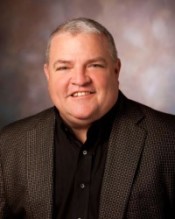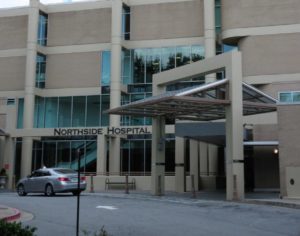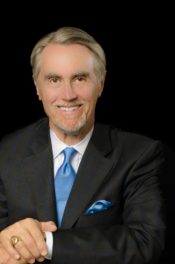Dr. Eddie Richardson practices medicine in two different physician worlds.
On the one hand, he’s an independent doctor working in a family medicine practice in Eatonton, east of Atlanta. Meanwhile, Richardson also is employed part time by a local hospital as a “hospitalist,’’ working 20 shifts a month.

So, working both as an employed physician and an independent doctor, he sees the advantages and drawbacks of each practice model.
At his hospital job, “I don’t have to worry about insurance hassles or making payroll,’’ Richardson says. But he also likes the autonomy of an independent practice. “I’ve been able to [pursue] some ventures. I do the hiring and the firing.’’
The life of the traditional independent physician will always have a certain appeal. It’s clear, though, that the balance is tipping toward the doctor who’s employed by a hospital or other large organization. An American Medical Association study last year found that fewer than half of practicing physicians in the nation owned their medical practices in 2016. That was the the first time on record when the majority of physicians were not practice owners.
More doctors, especially younger ones, are joining hospital systems and other organizations as employees to develop their healthcare careers.
The shift reflects many doctors having a big organization serve as a buffer from the pressures of regulatory compliance, administrative burdens, and evolving payment structures.
Many younger doctors “don’t exhibit the entrepreneurial streak’’ or have as much financial risk tolerance as past generations of physicians, says Tobin Watt, a health care attorney with Smith Moore Leatherwood in Atlanta.
Independent physicians also face demands of having a high-caliber IT system, as well as “the complexity of running a business and threats to revenue by Medicare cutbacks and pressures from insurers,” Watt adds.
But health insurers say that employment generally leads a doctor to refer patients to the facility the doctor works for – and that can drive up the cost of health care.
Critics say changes increase costs
The state’s largest health insurer, Blue Cross and Blue Shield of Georgia, wants to keep as many doctors independent as possible. Blue Cross has developed an incentive pay plan for independent doctors, giving them administrative help and bonus payments for quality.

“If a physician is freed up to do the right thing for patients, without an unnatural bias, we think health care will be better,” said Jeff Fusile, president of Blue Cross of Georgia. And he adds that it will save on health care costs, with a positive impact on medical quality.
“We provide them a tremendous amount of analytics to manage patients’ care,’’ Fusile said.
A recent study linked higher health care costs to an increase in doctor employment by hospitals. A 49 percent increase in hospital-employed physicians between 2012 and 2015 led to a $3.1 billion increase in Medicare costs related to four specific procedures in cardiology, orthopedics and gastroenterology, reported Modern Healthcare, citing an analysis from consulting firm Avalere Health.
“Hospitals are a high-charge provider,’’ Watt says. A patient can go to an independent imaging firm and get a CT scan for $350, where the same test at a hospital would cost $1,200, he says.
In the background of evolving doctor practice models is the longstanding financial tension between insurers and hospital systems.

Fusile of Blue Cross sees hospital systems as an adversary in a battle for primary care physicians: “It’s a dogfight. It’s aggressive,’’ he says. “We want them to know there’s an option to be independent. We think it will be better for quality of care.’’
It’s not just Blue Cross engaged in this tug-of-war, says Chris Kane, a consultant with Progressive Healthcare. “Primary care represents the currency of health care,’’ he says. “Whoever influences that has a sizable advantage.”
“This is about scale and leverage in the future world,’’ he adds.
The conflict between insurers and hospital systems spills over into other areas. Piedmont Healthcare recently filed a lawsuit against Blue Cross over the insurer’s policies on ER use and imaging services.
Hospitals with big payrolls
A leading hospital-based system, Piedmont has 2,000 doctors in its clinically integrated network. Of that total, 600 are its employees.

The network that the Atlanta-based system runs offers better medical quality and lower costs for patients and employers, says Piedmont’s Matt Gove.
“We help connect patients to the most coordinated care,’’ Gove says.
Other large metro Atlanta hospital systems have built large forces of physicians. WellStar Health System, based in Marietta, has about 660 physicians and 340 midlevel practitioners employed within the organization.
Northside Hospital, an Atlanta-based system, says it has 277 employed physicians.

“There are significant advantages to these types of relationships,’’ says Lee Echols, a Northside vice president. “Because patients are able to stay within the Northside system of care, they benefit from a more coordinated care approach, more consistent care, and more consolidated and straightforward billing. They also get more one-on-one time with their health care providers because physicians and clinical staff have more freedom to practice patient care.’’
The business side of their practice is managed by Northside, and fixed costs and the responsibility for health care compliance are assumed by the hospital, Echols adds.
Emory Healthcare has nearly 1,700 employed doctors at its hospitals and clinics. In addition, Emory says it has 1,591 community physician partners.
“We want to have options for our physicians – some may want to stay in private practice but be associated with Emory, while others want to be fully employed by Emory,’’ says Patrick Hammond, CEO of the Emory Healthcare Network.
Many rural physicians have become employed by hospitals as well, as financial pressures make an independent practice difficult to sustain, says Jimmy Lewis of HomeTown Health, an association of rural hospitals in Georgia.
The range of pay offers for physicians generally can range from $180,000 annually to $350,000 and upward for specialists, experts say.
It’s a lifestyle choice
Richardson, the family medicine physician, says that “if you’re looking at lifestyle, employment is the way. If you like autonomy, independence is the way.’’
Lifestyle is a big reason why Dr. Melissa Boekhaus chose the employment route.

She practices as an employed WellStar pediatrician in Smyrna. The job gives her a good work/life balance, plus solid benefits, Boekhaus says.
“I’m a mom of three,’’ Boekhaus says. “I love my job. I just don’t care to be a business owner.”
WellStar, she says, is a stable organization that’s able to negotiate a good reimbursement rate with insurers.
“I’ve never had a mind for business,’’ Boekhaus says. “I just want to take care of patients.”
At the other end of the spectrum is Dr. Steven Wilson, a family medicine doctor in Warner Robins who wants to stay independent.
There’s an opportunity to share savings from lower health costs with the Blue Cross program, which Wilson has joined.
Wilson hired a care coordinator to work with patients with chronic conditions, including diabetes. “If you can improve care enough, we can defray that cost,” he says.
The Blue Cross data show where a doctor has improved or not in certain measures. Wilson said his practice has shown a 20 percent increase in people taking their medicines and a 15 percent increase in improving diabetes care.
“We’ve been able to be above the norm on quite a number of measures. A couple we’re still below.”
Dr. Christopher Apostol, a family medicine doctor in Evans, also has hired a care coordinator through the Blue Cross program.
The coordinator focuses on outlier patients, such as those with uncontrollable diabetes, reaching out to them, helping them manage their disease.
“As physicians become more employed, they seem more corporate,’’ Apostol says. “This allows us to stay independent, fight for the patients. It’s sad to see the institutionalization of medicine.”
Does the hospital make a good financial investment by buying physician practices?

Dr. Frank McDonald, a Gainesville neurologist who is independent, says hospitals tend to pay physicians more than the doctors can earn on their own. “They view it as a cost, but they’re going to make up the money elsewhere.”
Hospitals believe they can get revenue from referrals, on imaging services, on admissions, says McDonald, who is president of the Medical Association of Georgia. The doctors organization has no position on independent vs. employed physicians, he adds.
Piedmont’s Gove says there can be a financial return on employing physicians. “It depends on the practice and depends on what happens post-employment.’’
“We try to make smart investments, like any business does.”

